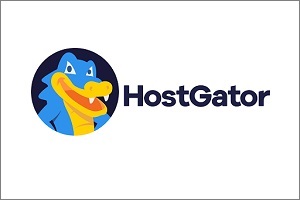When we talk about search engine optimization (SEO), Google is often the first and sometimes the only platform that comes to mind. After all, Google dominates the search engine market globally. However, focusing solely on Google could mean you’re missing out on a significant portion of online traffic. One of the key alternatives to Google is Bing, Microsoft’s search engine. This raises an important question for content creators and digital marketers, should you optimize your blogs for Bing?
This article dives deep into Bing’s relevance in the digital landscape, how its algorithm differs from Google’s, and practical tips on optimizing your blogs for Bing. The answer might surprise you.
Why Bing Deserves Your Attention
► Bing’s Market Share Is Growing
While Google commands about 90% of the global search engine market, Bing holds a substantial share—around 6-8%, depending on the region and device. In the United States, Bing’s share is even higher due to its integration with Windows, Edge, and Office products. Millions of users access the web via Bing, either directly or indirectly.
► Microsoft Ecosystem Integration
Bing powers the search functionality of several Microsoft products, including:
- Cortana
- Microsoft Edge
- Windows Search
- Office’s Smart Lookup
This integration means that a huge number of desktop searches happen through Bing by default, especially in corporate environments.
► Less Competition, Higher Visibility
Because most content creators and marketers focus on Google, Bing offers an opportunity for better visibility with less competition. Ranking on the first page of Bing could be easier and bring in traffic that you might not capture through Google alone.
Key Differences Between Bing and Google SEO
Understanding how Bing’s algorithm differs from Google’s is crucial to effectively optimizing your content for both.
-
Keywords Still Matter
Unlike Google, which emphasizes natural language and semantic search, Bing still places significant weight on exact-match keywords. Including your target keywords in the title, meta description, and headers can have a more noticeable impact on your Bing rankings.
-
Importance of Metadata
Bing heavily relies on metadata. Optimizing your :
- Meta titles
- Meta descriptions
- Image ALT tags
can lead to improved performance in Bing search results. Google often rewrites metadata, but Bing tends to respect what you provide more closely.
-
Backlinks : Quality Over Quantity
While both Google and Bing value backlinks, Bing appears to place more emphasis on the quality and domain authority of linking sites rather than the sheer number of links.
-
Social Signals Matter too !
Bing explicitly states that social media signals play a role in its ranking algorithm. If your content is widely shared on platforms like Facebook, Twitter, and LinkedIn, it may rank better on Bing.
-
Indexing Speed
Bing’s indexing can be slower than Google’s, meaning your content might take longer to appear in search results. However, submitting your URLs through Bing Webmaster Tools can help speed up the process.
-
Technical SEO and Site Structure
Bing is very strict about clear site structure, sitemaps, and mobile-friendliness. While Google has advanced capabilities for crawling complex websites, Bing prefers simplicity and clarity.
How to Optimize Your Blogs for Bing
Optimizing your blog for Bing involves a combination of on-page, off-page, and technical strategies. Here’s how to do it.
Focus on Exact-Match Keywords
Make sure your target keywords appear in the:
- Page Title
- Meta Description
- URL
- and Headings
- First 100 words of content
Use Proper Metadata
Always fill out:
- Meta Title (around 60 characters)
- Meta Description (around 160 characters)
- ALT Text for Images
- Open Graph tags for social sharing
High-Quality, Authoritative Content
Bing rewards content that is clear, informative, and authoritative. Use proper citations, statistics, and links to credible sources.
Build High-Quality Backlinks
Focus on acquiring backlinks from authoritative websites. Avoid spammy link-building tactics.
Leverage Social Media
Promote your blog posts on social platforms. Encourage shares and interactions to signal popularity to Bing’s algorithm.
Submit Your Site to Bing Webmaster Tools
Just like Google Search Console, Bing has its own platform. Submit your sitemap and individual URLs to ensure faster indexing.
Ensure Mobile-Friendliness
Use responsive design and ensure fast loading times. Bing favors mobile-friendly sites.
Improve Site Structure
- Use clear navigation menus
- Include breadcrumbs
- Have a logical URL hierarchy
The Benefits of Bing Optimization
Broader Audience Reach
By optimizing for Bing, you tap into a new user base, especially older demographics and professionals using Microsoft products by default.
Higher Conversion Rates
Studies have shown that Bing users often have higher conversion rates than Google users. They may spend more time on your site and are more likely to take action.
Less Competition
With fewer websites competing for top spots on Bing, you have a better chance to rank well and drive traffic.
Complementary to Google SEO
Bing optimization does not conflict with Google SEO. In fact, many best practices overlap. The few extra steps required for Bing can give your site a competitive edge.
When Should You Prioritize Bing SEO?
While optimizing for Bing makes sense in general, there are certain situations where it becomes even more crucial
- Targeting a U.S. audience : Bing has higher market penetration in the U.S.
- Reaching an older demographic : Older users are more likely to use default browsers and search engines.
- Targeting corporate and professional users : Many organizations use Microsoft systems by default.
- Running B2B websites : Bing’s user base overlaps with many B2B audiences.
But bare in mind the Potential Challenges that you may face if you replace Google for Bing
Slower Indexing
Unlike Google, Bing may take longer to crawl and index your content, especially if it’s not submitted manually.
Limited Tools and Resources
Bing Webmaster Tools are helpful but not as robust or widely supported as Google’s suite of SEO tools.
Smaller Market Share
Even though Bing has millions of users, its global market share is still much smaller than Google’s, which may limit your potential traffic gains.
So should you go for Bing for your Blogs Optimization?
Optimizing your blogs for Bing is worth it—especially if you want to diversify your traffic sources and reach untapped audiences.
With its growing user base, integration into Microsoft products, and unique algorithmic preferences, Bing offers a worthwhile opportunity for bloggers and marketers who want to stand out. The investment in Bing SEO is relatively low compared to the potential returns.
Don’t put all your SEO eggs in one basket. By giving Bing some attention, you create a more balanced, future-proof content strategy that captures traffic from multiple channels.



